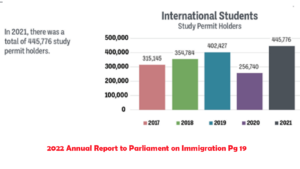When international students apply for a study permit, they must submit a Letter of Acceptance from a DLI. The DLI number (which starts with the letter “O” followed by numbers) is displayed on all offers of admission. All elementary and secondary schools in Canada are automatically identified as DLI. If you plan to study at college or university, it is better to ensure that the school you are applying for is a DLI.
Although only graduating from a DLI will allow you to obtain a Post-Graduation Work Permit (PGWP) to gain valuable Canadian work experience, not all DLIs make you eligible to apply for a PGWP. Therefore, you must consider all factors and custom-make your planning in advance.
Contact EGI to discuss with our professional advisors to plan ahead before you submit any admission application to avoid any hassle.
A wise decision is a successful beginning.
Reference:
IRPA Section 216(e)
Study permits
216 (1) Subject to subsections (2) and (3), an officer shall issue a study permit to a foreign national if, following an examination, it is established that the foreign national
(a) applied for it in accordance with this Part;
(b) will leave Canada by the end of the period authorized for their stay under Division 2 of Part 9;
(c) meets the requirements of this Part;
(d) meets the requirements of subsections 30(2) and (3), if they must submit to a medical examination under paragraph 16(2)(b) of the Act; and
(e) has been accepted to undertake a program of study at a designated learning institution.
Marginal note:
Exception
(2) Paragraph (1)(b) does not apply to persons described in section 206 and paragraphs 207(c) and (d).
Marginal note: Study in Quebec
(3) An officer shall not issue a study permit to a foreign national who intends to study in the Province of Quebec — other than under a federal assistance program for developing countries — and does not hold a Certificat d’acceptation du Québec, if the laws of that Province require that the foreign national hold a Certificat d’acceptation du Québec.






